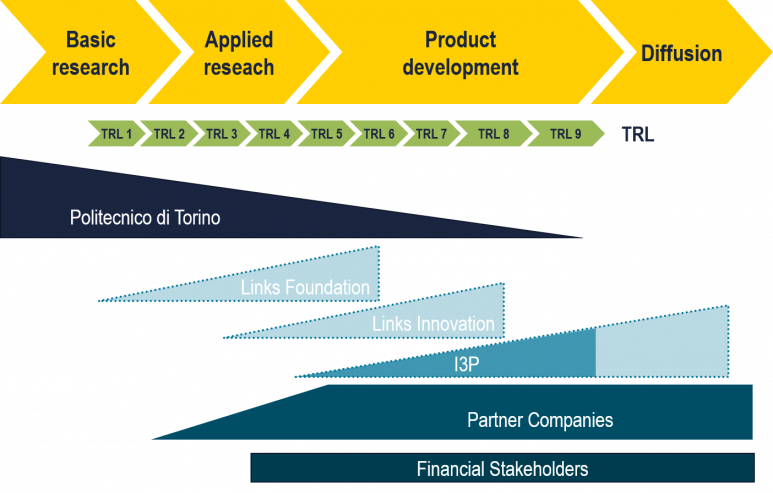Innovating in different fields

The activities aimed at innovation and technology transfer consist of a wide variety of fields of action, and will be strengthened and developed in a balanced and synergistic way.
- Industrial property rights management to increasingly support researchers, to make our patent portfolio achieve a critical mass and strengthen licensing activities, to foster Proof of Concept initiatives, which seek to raise the Technology Readiness Level of patented technologies
- Support in the creation of innovative enterprises, by relaunching the I3P incubator’s activities in supporting spin-offs and start-ups, and through its effective integration into the innovation ecosystem that we are building around our University; development of actions aimed at ensuring greater maturity for business initiatives, review and simplification of the requirements related to spin-offs and attraction of venture capital funds
- Active involvement of individual researchers, through the enhancement of third mission experiences for faculty members' careers and the implementation of actions limiting interpretative obstacles to the various "free" activities allowed by the current legislation
- Enhancement of the Relations with Professional bodies to develop important synergies with external actors and to involve individual professionals in educational programmes, as well as in lifelong learning joint initiatives.
- Innovation in the fields of architecture, planning and design, to reflect on local and urban problems, also on issues of social importance, and with the study of new initiatives (e.g. creation of an interdepartmental Design Centre)
- Industrial policy and attraction of investments rooted in a variety of structures and initiatives (e.g. Regional Innovation Poles, National Clusters, Competence Centre, etc.), and strengthening of the dialogue with relevant actors at local and national level in order to ensure continuous progress of policies on attracting investments
- Support to technical-scientific support to standardization bodies, policy-makers and independent regulatory authorities
- International development cooperation, by promoting and organising in a common strategy the activities carried out, such as participation in international networks and by stimulating an active involvement of the various members of the academic community, including students.
Completing the innovation value chain

